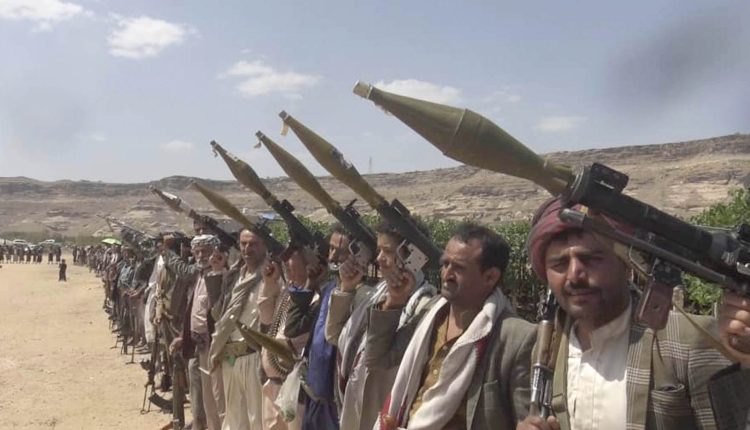The Yemeni Tribe in the Era of the Quranic March: A Continuation of Authenticity and a Manifestation of Faith-Based Identity
Throughout successive historical periods, the Yemeni tribe has served as one of the pillars of national identity, a foundation for political and social stability, and a source of noble values and customs. Under the “Quranic March,” the significance of this authentic component of Yemen’s civil society has only grown, emerging as a key player in preserving faith-based identity, defending national principles, and confronting challenges to Yemen’s sovereignty and independence.
In this critical phase, the tribe has become the nation’s stabilizing force and a steadfast pillar that has played an honorable and commendable role amid all events and transformations. Today, the tribe stands at the heart of the Quranic project—contributing to its construction, protecting it, and providing men, principles, and firm stances—representing a natural extension of its glorious history.
From Historical Roots to a Mission-Driven Presence
For thousands of years, the Yemeni tribe has been known as the bearer of the nation’s identity and the principal actor in the rise of ancient civilizations such as Saba, Ma’in, and Himyar. Historically, tribes have safeguarded the nation’s sovereignty, defended its land and honor, and rejected foreign domination and guardianship.
In the era of the Quranic March, the tribe found itself aligned with a project that embodies its core values and historic essence—a project that raises the banner of independence, adopts the Quran as a methodology, and centers on rejecting subservience and political submission. This convergence of tribal values and the principles of the March became a key factor in the resilience of Yemeni society amid enormous challenges.
The Tribe in the Discourse of Mr Abdul-Malik Badr al-Din al-Houthi
A defining feature of the Quranic March has been Sayyed Abdul-Malik Badr al-Din al-Houthi’s approach to the tribe—not as a traditional social structure, but as a strategic force with religious, national, and social dimensions. In most of his speeches, he addresses the Yemeni tribes with deep respect and recognition, emphasizing their central role in supporting battlefronts, reinforcing Quranic values, and contributing to the liberation struggle against foreign domination.
In a 2020 speech, he stated:
“The Yemeni tribes, with their free men and authentic stances, were the first to support the frontlines. They provided convoys and fighters, stood firm with patience, and served as a formidable bulwark against all conspiracies.”
He has repeatedly stressed that the tribe must be at the forefront of building a just state, shedding any negative inherited customs that conflict with true faith values, and holding fast to what strengthens their connection to God and the nation.
The Tribe as a Force Defending Land and Faith
Since the brutal aggression on Yemen began in 2015, Yemeni tribes have been at the forefront of resistance—not only by sending fighters and equipment but through a collective stance that rejected submission and stood firm against political and tribal infiltration attempts.
Field reports from Ain al-Insaniyah Center (2022) indicate that over 65% of frontline fighters are from tribal backgrounds, and the popular support provided by tribes in the form of convoys, food, and transportation was a cornerstone in sustaining the battle and defending sovereignty. The tribe has remained a guardian of national constants, a rejecter of sedition, and a destroyer of projects of division and fragmentation.
The Tribe and Faith Identity: An Inseparable Bond
The faith-based identity upheld by the Quranic March is a set of values derived from the Holy Quran—such as dignity, support, loyalty to God, and disavowal of His enemies. These values are not foreign to the Yemeni tribe; rather, they are deeply embedded in its character. This made the tribe’s integration with the Quranic project natural and organic.
The tribe is not only a military or social force but also a guardian of a complete identity, capable of protecting faith values from cultural and intellectual intrusions. This cohesion has played a prominent role in enhancing national unity and fortifying society against sectarian and doctrinal discord.
According to a 2023 study by the Bonyan Development Foundation, cultural mobilization programs within the tribes helped raise awareness of the importance of faith identity and connected jihadist action with religious and social values.
From Confronting Aggression to Building the State
The tribes have not limited themselves to defending the homeland; they have also actively participated in state-building through engagement in national reconciliation committees, local governance councils, and community development initiatives.
In his speeches, the Sayyed has repeatedly emphasized the importance of transforming the tribe from a traditional entity into an aware partner in building a just state—one that can achieve self-sufficiency, establish social justice, and fight corruption.
He also praised tribal communities that evolved into centers of agricultural and developmental production, instructing that they be supported and empowered to enhance Yemen’s economic independence.
Conclusion
In the era of the Quranic March, the Yemeni tribe is no longer merely a social legacy; it has become a unifying force, a dynamic contributor to resilience and development, and a moral and spiritual structure drawing its strength from faith—reflecting the essence of the authentic Yemeni self.
The Quranic project found in the Yemeni tribe a solid pillar, and the tribe found in it a pure continuation of its historical values. The union between the two has come to symbolize a new phase in Yemen’s history—a phase of dignity, liberation, and reconstruction.

